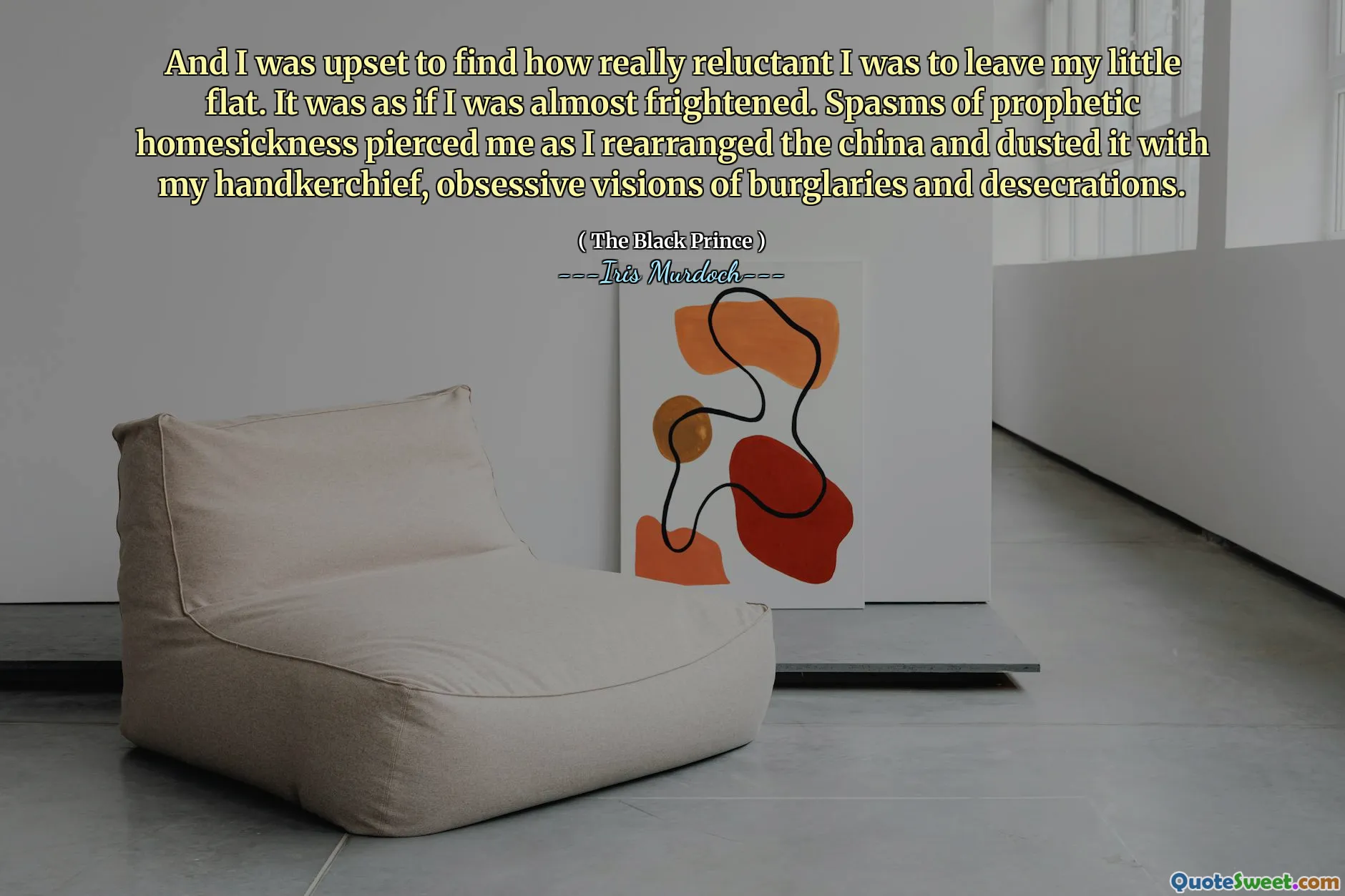
And I was upset to find how really reluctant I was to leave my little flat. It was as if I was almost frightened. Spasms of prophetic homesickness pierced me as I rearranged the china and dusted it with my handkerchief, obsessive visions of burglaries and desecrations.
This passage poignantly captures the deep attachment and emotional vulnerability that often accompany the act of leaving a familiar space. The narrator's reluctance to depart from the 'little flat' reveals a profound sense of belonging and comfort within that environment, suggesting how spaces can become tightly woven into our identities. The fact that they feel 'almost frightened' indicates an underlying fear of change and the loss of sanctuary. The imagery of 'spasms of prophetic homesickness' elegantly conveys the involuntary, almost visceral experience of anticipatory grief—anticipating not only departure but potential threats that could shatter the sanctuary they've built. Rearranging the china and dusting it aligns with compulsive gestures rooted in a need for control and order, symbolizing a desire to preserve and cling to memories even as they anticipate leaving them behind. The obsessive visions of burglaries and desecration underscore a deeper fear of brutality and violation—fear that the safe space might be invaded or destroyed by external forces. This introspective revelation touches on universal themes of attachment, fear of impermanence, and the human tendency to romanticize stability and security. It is a powerful reminder of how our environments shape our sense of self and how, often unknowingly, we develop attachments that evoke a mixture of love, fear, and resistance to inevitable change. The sentiment resonates beyond the superficial act of packing—it's an intimate reflection on the vulnerability we feel when confronted with life's transient nature.




